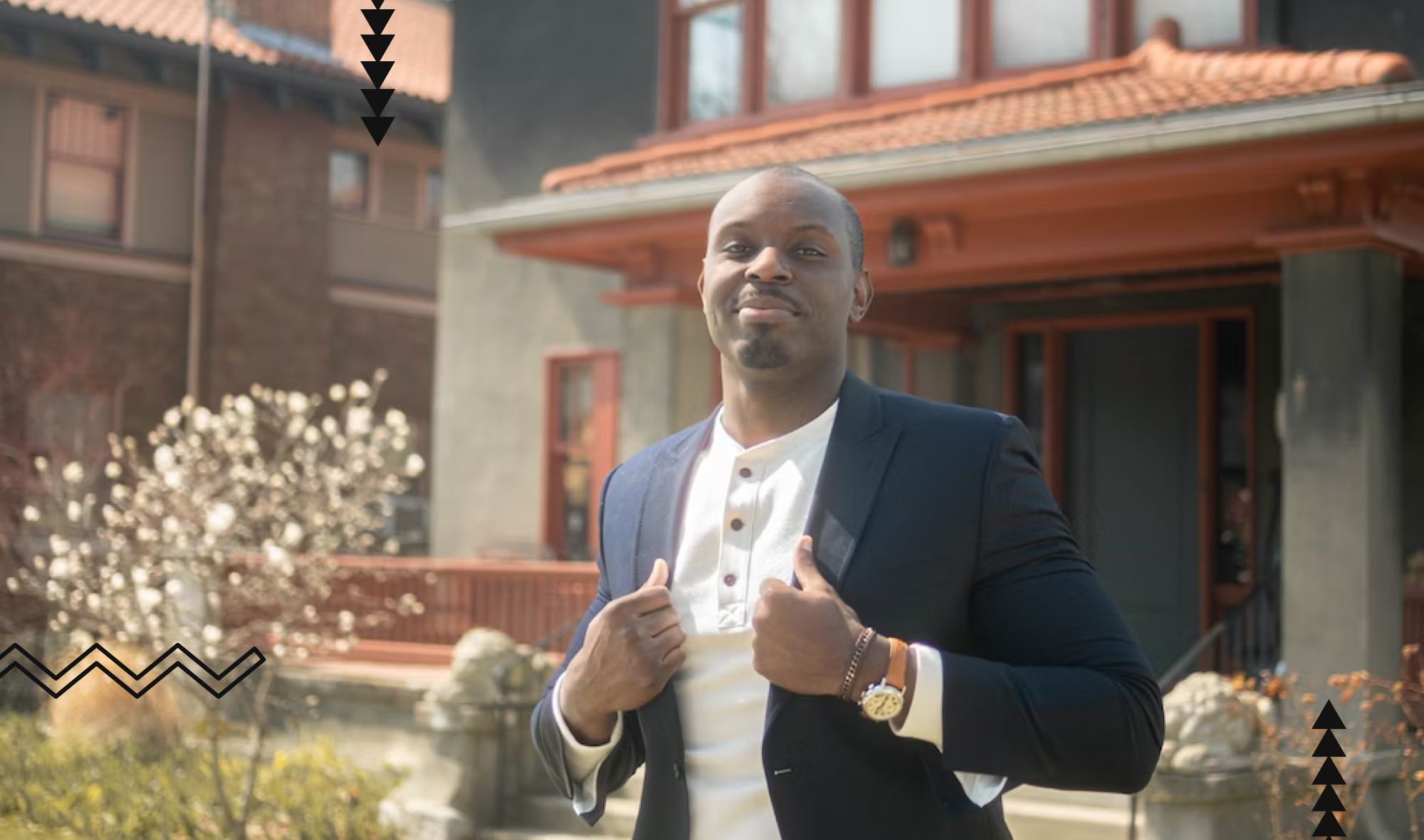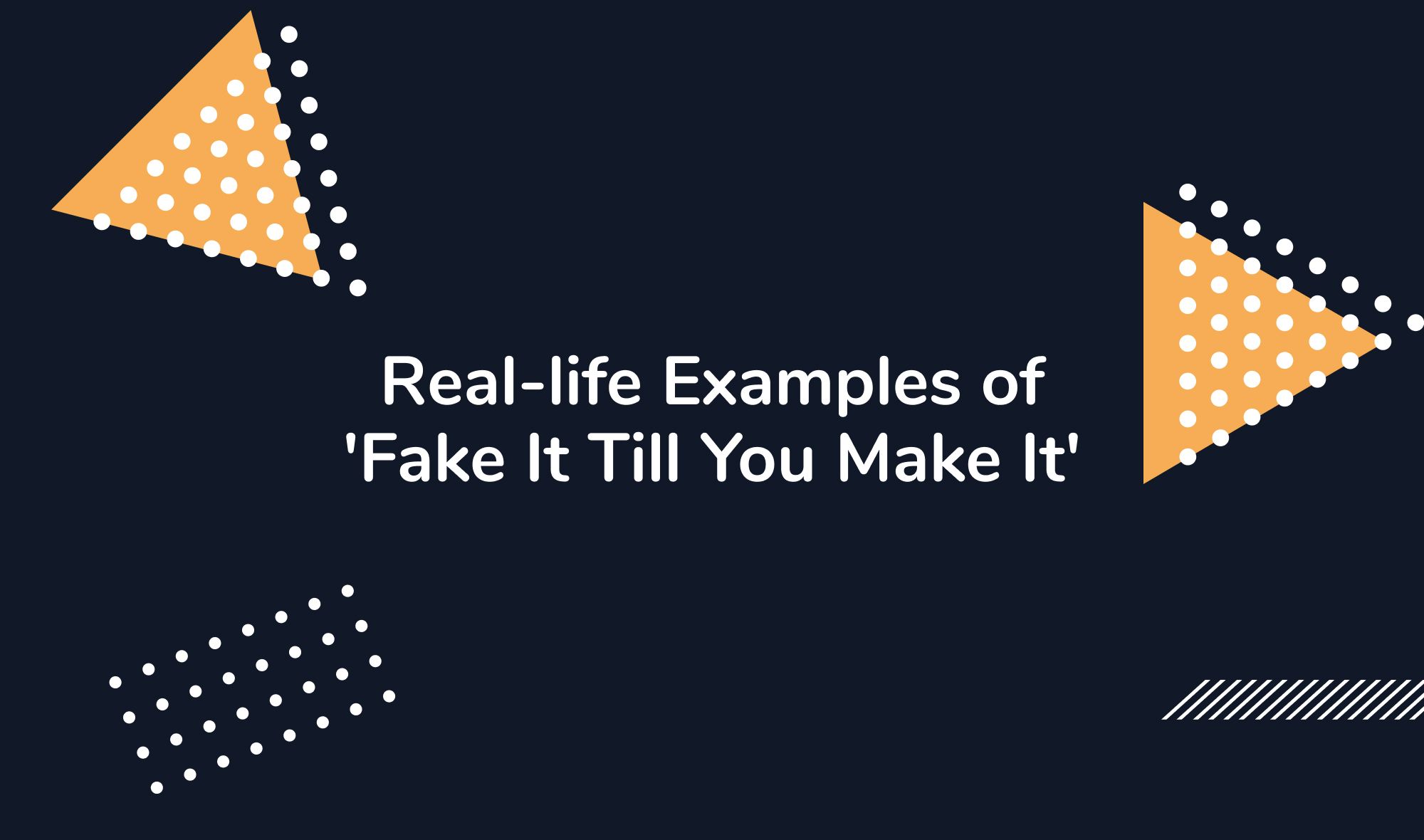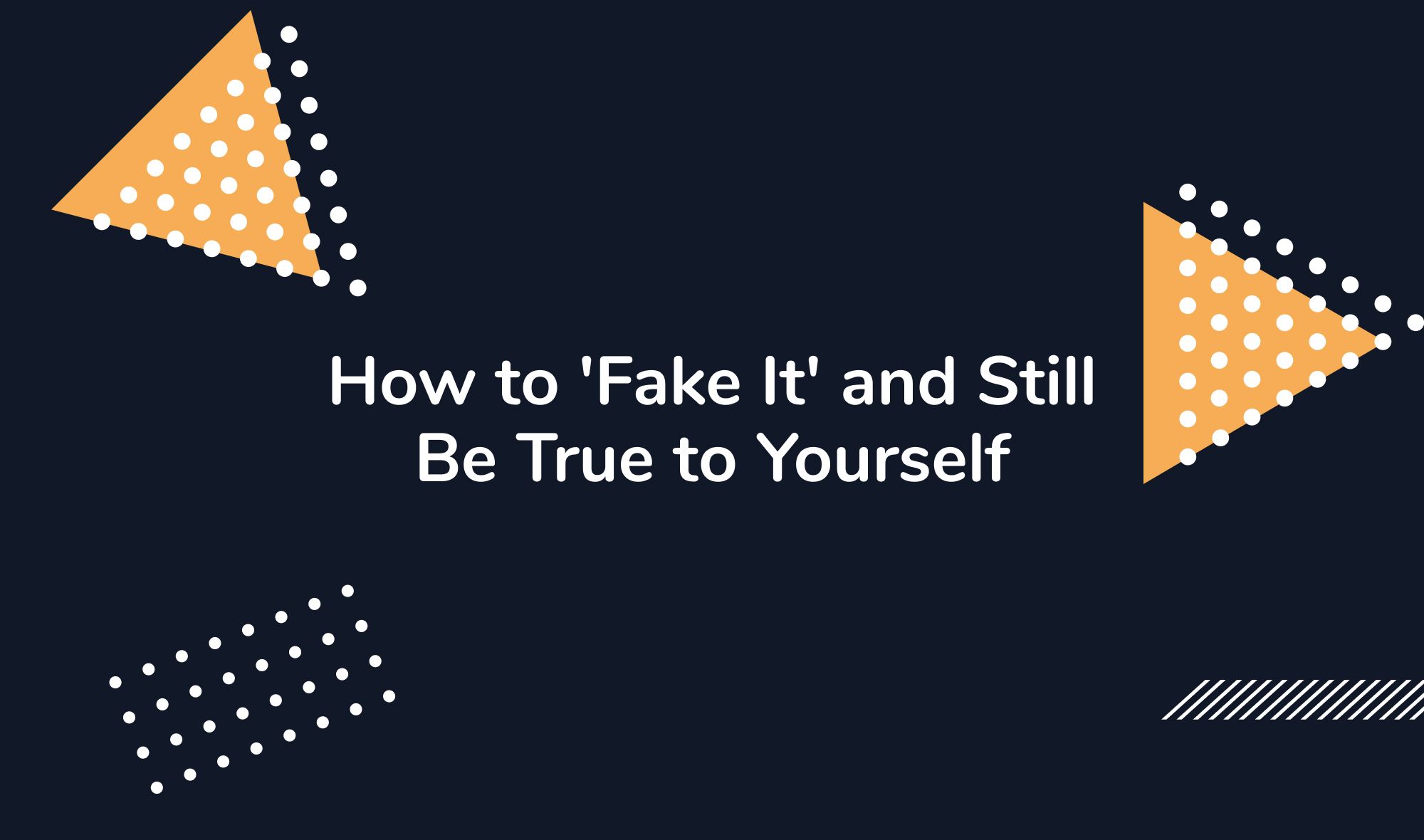Fake it Till You Make It: A Positive Spin on Confidence
By Julian Lewis • July 26, 2023
Key Takeaways
- "Fake it till you make it" is not about deceit, but a tool for building genuine confidence and self-belief.
- Acting as if you already possess certain skills or behaviors can accelerate your learning process.
- The "fake it till you make it" mantra can help combat Impostor Syndrome and anxiety.
- It's crucial to balance positivity and reality to avoid 'toxic positivity'.
- "Faking it" is a part of the journey to becoming a more confident, resilient individual, fully equipped to pursue future goals.

Introduction: A New Outlook on 'Fake It Till You Make It'
You've likely heard the phrase "fake it till you make it" at some point in your life. It's a well-known mantra, often shared as good advice for moments of self-doubt or fear. But what if we told you that this seemingly simplistic phrase can do more than just put on a brave face? That it can potentially be the key to transform your life by helping you build confidence, reduce stress, and maintain a positive outlook, even in the face of adversity?
This phrase, often bandied around by motivational speakers and self-help books, may sound like a cliché. But with a careful and critical understanding, it can be a powerful tool to develop new behavior, break out of your comfort zone, gain more and give a positive spin to your journey towards becoming a more confident person.
Before we delve deeper, let's clarify what we mean by "fake it till you make it". It doesn't imply dishonesty or deceit. Rather, it encourages imitating confidence, competence, and an optimistic mindset until these become part of your personality. It's about creating a positive feedback loop where acting confident leads to feeling confident.
The 'fake it till you make it' approach might seem intimidating, or even feel awkward at first. But remember, the idea isn't to become a 'know it all' overnight. It's about gradual change, taking small steps towards your future goals, and eventually achieving them.
Curious to know more? Let's explore together the idea behind this popular phrase, its origins, scientific basis, and how it can potentially influence your life for the better.
Stay with us as we dive into the world of 'fake it till you make it', and let's discover how this simple act can become a powerful attraction movement in your life.
Join our Newsletter
Transform your career with our personal growth insights. Get one valuable tip right in your inbox every Saturday morning.
The Origin of the Phrase
The idea of "fake it till you make it" has been around for quite some time. The first known usage traces back to the 1920s when Alfred Adler, a prominent Austrian medical doctor and psychotherapist, coined the similar phrase of "acting as if". Adler suggested that a person could overcome their insecurities and feel more confident by pretending to be a version of themselves that embodies these qualities. Over time, Adler's idea evolved into the more colloquial and catchy phrase we know today: "fake it till you make it".
Though Adler was the first to popularize this idea, the concept and good strategy of "acting as if" to achieve our goals has timeless relevance. Throughout history, countless individuals have used this approach to overcome adversity, challenge societal norms, and achieve personal success. From Martin Luther King Jr. to Steve Jobs, the mantra has been silently whispered in the corridors of history, shaping people and events.
Yet, it's not just a tool for the exceptional. This principle is universal and accessible to everyone, no matter where they are in life. The beauty of this mantra is its simplicity and adaptability to various situations, whether it's a new job, a daunting presentation, or simply dealing with everyday anxieties. You can read more about how this timeless mantra is still relevant in our modern world on our blog.
The Science Behind 'Fake It Till You Make It'

As surprising as it may sound, there is a substantial amount of scientific evidence supporting the "fake it till you make it" approach. Two key areas of this philosophy involve understanding body language and the psychology of confidence, and the way our hormone levels and stress responses are influenced by our behaviors.
Body language is a significant aspect of our communication. Amy Cuddy, a social psychologist, suggests that adopting 'power poses' (standing tall with your chest lifted and arms either up or propped on the hips) can significantly boost your self confidence. By consciously changing our body language, we can affect our feelings and attitudes. It can make us feel more powerful and self-assured, even when we're not. This concept is a fundamental part of the personal coaching we offer at Zella Life.
Moreover, researchers have discovered that our body language and the way we carry ourselves can directly influence our hormone levels. Adopting confident postures and words can increase testosterone (a hormone linked with power and dominance) and decrease cortisol (a stress hormone). This change in hormones can subsequently reduce stress levels and make us feel more composed and self-confident.
Join our Newsletter
Transform your career with our personal growth insights. Get one valuable tip right in your inbox every Saturday morning.
On a psychological level, the "fake it till you make it" concept ties into the idea of cognitive dissonance—the discomfort we feel when our actions and beliefs do not align. When we act confidently (even if we realize we don't initially feel that way), our brains strive to resolve this dissonance by altering our internal attitudes to match our external behavior.
Furthermore, stepping out of our comfort zone by talking and acting confident can also provide us with new skills and experiences, aiding in reducing anxiety over time and fostering genuine confidence. For more insight into this fascinating interplay between behavior, hormones, and stress, feel free to explore our resources on psychological safety at work.
Ultimately, "fake it till you make it" isn't about deceiving others. It's about tricking our brains into believing we're more confident and capable until those feelings become our reality. It's a perfect example of how acting can lead to becoming.
Real-life Examples of 'Fake It Till You Make It'

From Hollywood stars to successful entrepreneurs, numerous individuals have leveraged the "fake it till you make it" philosophy to overcome their insecurities and achieve remarkable success.
Consider the case of Richard Branson, founder of the Virgin Group. Branson, who suffers from dyslexia, often felt out of his depth in the business world. Nevertheless, he committed to appearing confident and capable until he genuinely felt that way. He once said, "If somebody offers you an amazing opportunity but you are not sure you can do it, say yes – then learn how to do it later!"
Similarly, Amy Cuddy, the social psychologist we mentioned earlier, battled her insecurities when she started as an assistant professor at Harvard Business School. She felt like an imposter, fearing she wasn't smart enough. By using power poses and projecting confidence, Cuddy not only tricked others into believing she was confident but tricked herself as well.
These examples highlight the battles many people face with Impostor Syndrome and anxiety. The feeling of being a fraud, of being inadequate, despite evident success, can be paralyzing. "Faking it" can help overcome this debilitating self-doubt and serve as a helpful stepping stone towards genuine confidence and self-belief. You can read more about impostor syndrome and strategies to combat it on our blog.
How to 'Fake It' and Still Be True to Yourself

"Faking it till you make it" does not mean pretending to be someone you're not. The goal is to grow into the best version of yourself. It's about acting out the confident person you aspire to be, not impersonating someone else.
To build confidence without losing your true self, consider the following strategies:
- Set clear, achievable goals: Know what you're working towards. Visualize your confident self and act accordingly.
- Practice self-compassion: Understand that it's okay to make mistakes and not be perfect. Remember, you're learning and growing.
- Reflect on your successes: Celebrate your achievements, no matter how small they may seem. These affirmations serve as reminders of your capabilities.
While maintaining a positive outlook, it's also essential to avoid the trap of 'toxic positivity'. This term refers to the overgeneralization of a happy, optimistic state that results in the denial and invalidation of genuine emotional pain. Instead, aim for balanced positivity that acknowledges your struggles but doesn't let them define you. You can read more about avoiding toxic positivity on our blog.
Moreover, 'faking it' can also be an effective tool for acquiring new skills. Acting as if you already possess the skills you aspire to have can accelerate your learning process. For example, if you want to be a better public speaker, start by imitating the habits of good speakers – study their body language, their pace, their style of storytelling. Over time, these behaviors will feel more natural to you.
At Zella Life, we offer business coaching that can provide you with the tools and techniques to effectively "fake it till you make it", while still staying true to who you are.
Conclusion: Confidence, Positivity, and Future Goals
The journey from "faking it" to actually "making it" is not an overnight transformation. It is a calculated process of imitating confidence, learning from experiences, and growing into a more self-assured version of yourself.
This approach encourages us to take on challenges and face our fears, offering a positive spin on confidence-building. With every step outside our comfort zone, we learn and grow, slowly but surely becoming the confident person we aspire to be.
The beauty of the "fake it till you make it" mantra lies in its adaptability. It can be applied to various aspects of life - from professional aspirations to personal growth. It encourages us to visualize our future goals, act as if we've already achieved them, and gradually, we find ourselves transforming into the person we envisioned.
In the end, it's not just about faking confidence; it's about becoming more resilient, embracing a positive outlook, and progressing towards our future goals. It's about transforming the "act" into "action" and moving forward with increased self-assurance, hope and determination.
To further enrich your journey of personal growth, you might find it helpful to explore our post on 11 tips for living your best life.
Read more about: Imposter Syndrome, Well-being, Life Coaching
About Julian Lewis
Julian Lewis is a driven and accomplished professional with a passion for driving positive change in the business world. He is the co-founder and COO at Zella Life.
His own experience as a professional of color in a Fortune 500 company led him to discover the limitations for advancement that many professionals like himself face. Determined to reach his full potential, Julian became an established business coach and entrepreneur, committed to supporting others in their pursuit of personal and professional growth.
Today, Julian is a recognized corporate trainer, coach, and leader, known for his ability to leverage real-life experiences and evidence-based methodologies to affect positive change within individuals and organizations. As the leader of Zella Life's coaching division, he is dedicated to empowering individuals and businesses to achieve their full potential.